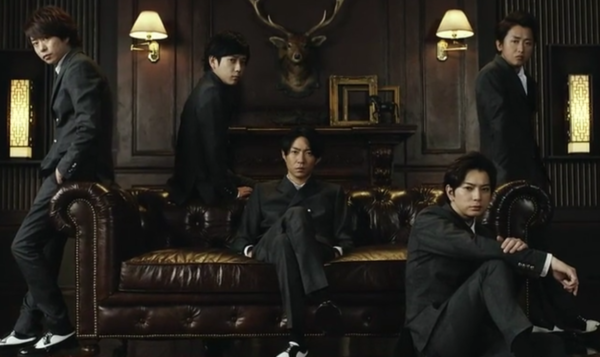
Arashi gave an interview to Variety recently about their increasing openness to the global market, and one thing that Matsumoto Jun said pissed off a lot of people. Some Koreans, sure, but mainly international K-pop fans who I guess didn’t know they existed decades before their faves.
Anyway, Jun basically explains that he feels pride that a system from Johnny’s he came up with was part of the blueprint for the eventual global success of K-pop.
When asked what he thought Kitagawa’s legacy really should be, Jun spoke only of the hit-making system the manager had brought to Asia. “Johnny created so many boy bands in his 60 years of working and left an indelible mark not just on the entertainment industry of Japan, by bringing it up to a global standard, but also on Asian pop culture overall, even outside of Japan, [visible in] the rise of the Asian pop generation,” he says. “What you’re currently seeing now with non-Japanese groups as well all really found its roots in the foundational work that Johnny did back in the 1960s.” Even though K-pop is exploding globally, Jun says he harbors no hard feelings. “I feel no sense of the kind of tribalism that some people might imagine, but rather a sense of pride that the architecture that Johnny laid the foundations for decades ago is now finally starting to cross borders. Even if it’s not being done by Johnny, per se, the legacy still continues and is alive and well. You can see the flowers taking root in other cultures and countries,” he says. Laughing, he admitted, “I’ve definitely heard ‘Dynamite’ quite a few times,” referring to the K-pop group BTS’ first entirely English-language single that made them the first Korean group to hit No. 1 on the Billboard Hot 100 chart. While “Whenever You Call,” the group’s collaboration with Bruno Mars, did not reach those chart peaks, it’s received a warm reception from international fans who appreciate their idols’ new accessibility on YouTube and social channels.
Of course, some Korean netizens took offense, but it honestly didn’t seem like such a big issue there. Mainly it seems to be international fans arguing about it in some kind of bizarre soft power proxy war between K-entertainment/K-pop loyalists and J-entertainment/J-pop loyalists despite very few of the people actually being Korean or Japanese or caring about the potential geopolitical aspect of this at all. Hell, the comments on the Variety article itself seems to show that without even taking into account social media.
Yet all of it seems, quite frankly, ridiculous.
Sure, in the least charitable reading of the comments possible, it could come off as a back-handed compliment and/or taking credit where it’s not due. Perhaps that’s partially the intention, but it’s also not untrue that Johnny’s and the system they replicated from Motown’s Berry Gordy has had an outsized influence on K-pop.
Whether they admit it or not, and probably not due to the aforementioned geopolitics, it doesn’t take much to go back to the first gen of K-pop (or those who preceded them) and see the similarities the system they were grown under had with Johnny’s along with their marketing of idols in East Asian society/culture. Hell, even without the system, K-pop had a lot of … uh, coincidences with J-pop of the time. It was influenced by artists like SPEED, tended to look stylistically similar (to comical effect now) to visual kei rockers, and even K-netizens acknowledge that Amuro Namie was the blueprint for Hyori and other female Korean soloists. Compare that with now, where some J-pop groups take more influence from K-pop, though the point is neither of those things are bad things to simply admit as realities. It doesn’t need to be a one side or the other thing, as it’s possible to acknowledge the roots and influence of J-pop (and also of J-pop in Motown) and also say that K-pop took it to new heights, probably by necessity, as J-pop’s influence has stagnated.
And in a way, the fact that a two-decade old legendary group that’s suspending activities at the end of the year is only now trying to be more open to the overseas market is truly a perfect summation of how K-pop and J-pop flipped during Arashi’s lifespan.
 Asian Junkie Asian pop. Without discretion.
Asian Junkie Asian pop. Without discretion.